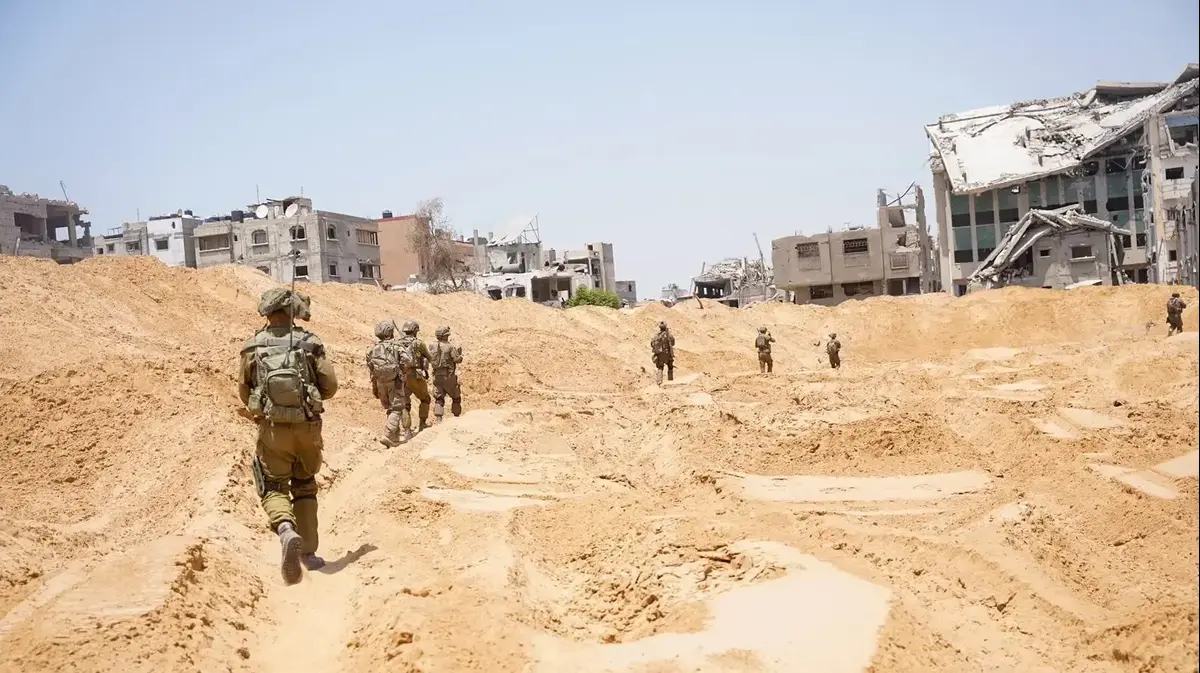Escalating Tensions in Gaza as Israel Fights to Secure Peace
The current conflict in Gaza has seen significant activity from both sides. The Israel Defense Forces (IDF) have maintained their position that the war will continue until all their objectives are met. Despite ongoing negotiations and proposals for the release of hostages, a comprehensive and lasting ceasefire remains elusive. The primary goals for Israel include dismantling Hamas' military and governmental infrastructure, ensuring the safety of the abductees, and eliminating Gaza as a threat.
Sources indicate that the Israeli government is firm on achieving a deal that meets its terms. Phase 2 of the proposed agreement, which involves a permanent ceasefire, hinges on reaching an understanding on specific conditions. Israel reserves the right to resume hostilities if negotiations prove to be stalling tactics. This flexibility allows Israel to pressure Hamas without committing to a prolonged ceasefire that might be violated.
On the other side, Hamas has presented numerous demands that complicate the path to an accord. This includes immediate ceasefires, IDF withdrawals from key locations, and a significant pullback from Gaza within specified periods. Hamas also insists on the release of Palestinian prisoners and rejects any preconditions concerning their exile. They aim to conclude the first phase of the deal with an announcement of extended peace, which they equate to a complete cessation of military actions.
The US and Israel have found common ground in pushing for Hamas to adhere to the original outlines proposed by President Joe Biden. However, Hamas' evolving conditions have cast a shadow over the negotiations. US Secretary of State Anthony Blinken has publicly criticized Hamas for their additional demands and portrays them as primary obstacles to reaching an agreement.
Amidst these negotiations, there remains an evident strain on Israel's capacity to make further concessions. Despite this, Israeli officials acknowledge that a deal remains the most viable solution for bringing the abductees home, supplemented by tactical operations whenever feasible. The IDF’s continued operations in the north, targeting Hezbollah senior members, signify Israel's intent to keep the pressure on multiple fronts.
As Prime Minister Netanyahu's recent security meetings reveal, the sentiment remains pessimistic yet persistent. The potential for an agreement remains, but it is contingent upon navigating through the complex web of demands and conditions set forth by Hamas. Israel's strategic patience, under constant international scrutiny, seeks to balance immediate security with long-term stability.
- Negotiations for the Gaza conflict continue to face setbacks as both parties lock horns over terms and conditions. Israel's insistence on strict adherence to phase agreements and conditions for ceasefires showcases their strategic approach to ensure any deal is sustainable.
- Hamas' counter-demands, including international guarantees from countries like China, Russia, and Turkey, indicate their desire for broader validation and support. This geopolitical dimension suggests the conflict's resolution is not merely a bilateral issue but one with global implications.
- Despite the challenging negotiation landscape, external actors like Egypt and Qatar continue to play mediating roles, striving to bridge the widening gap between Israel and Hamas.
- The international community watches closely as this unfolding drama holds significant potential to either ignite further conflict or pave the way for a fragile yet hopeful peace in a region marked by long-standing animosities.






